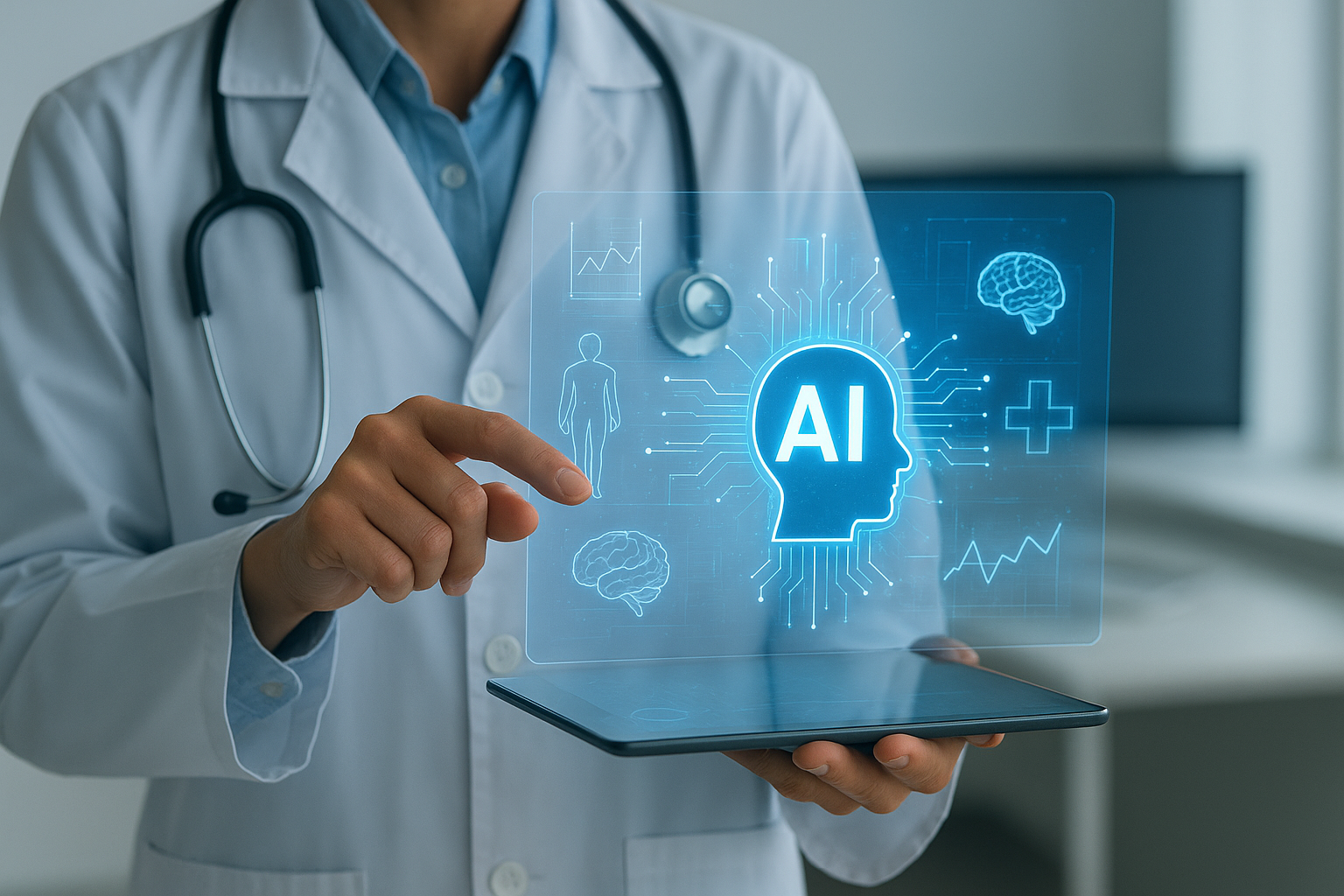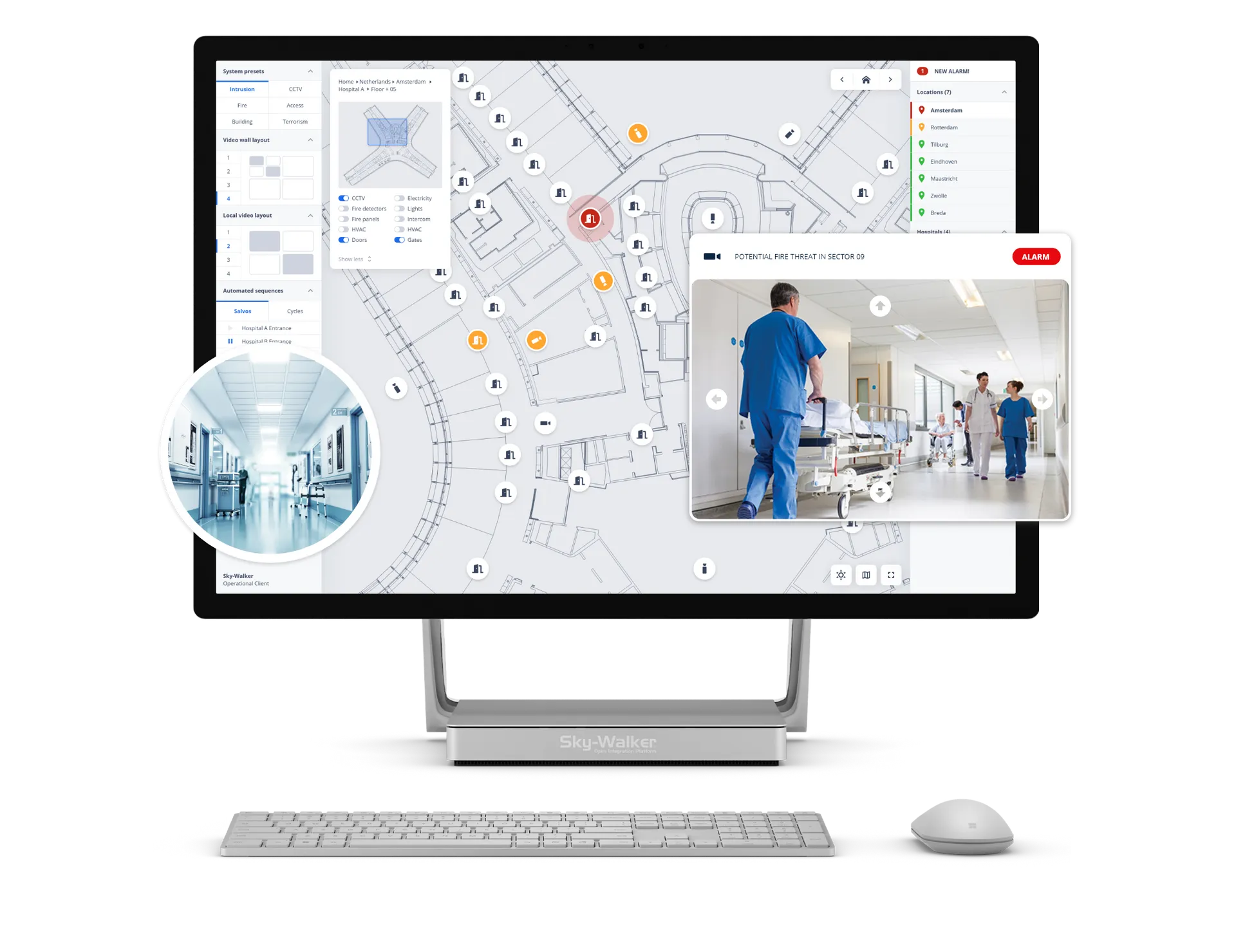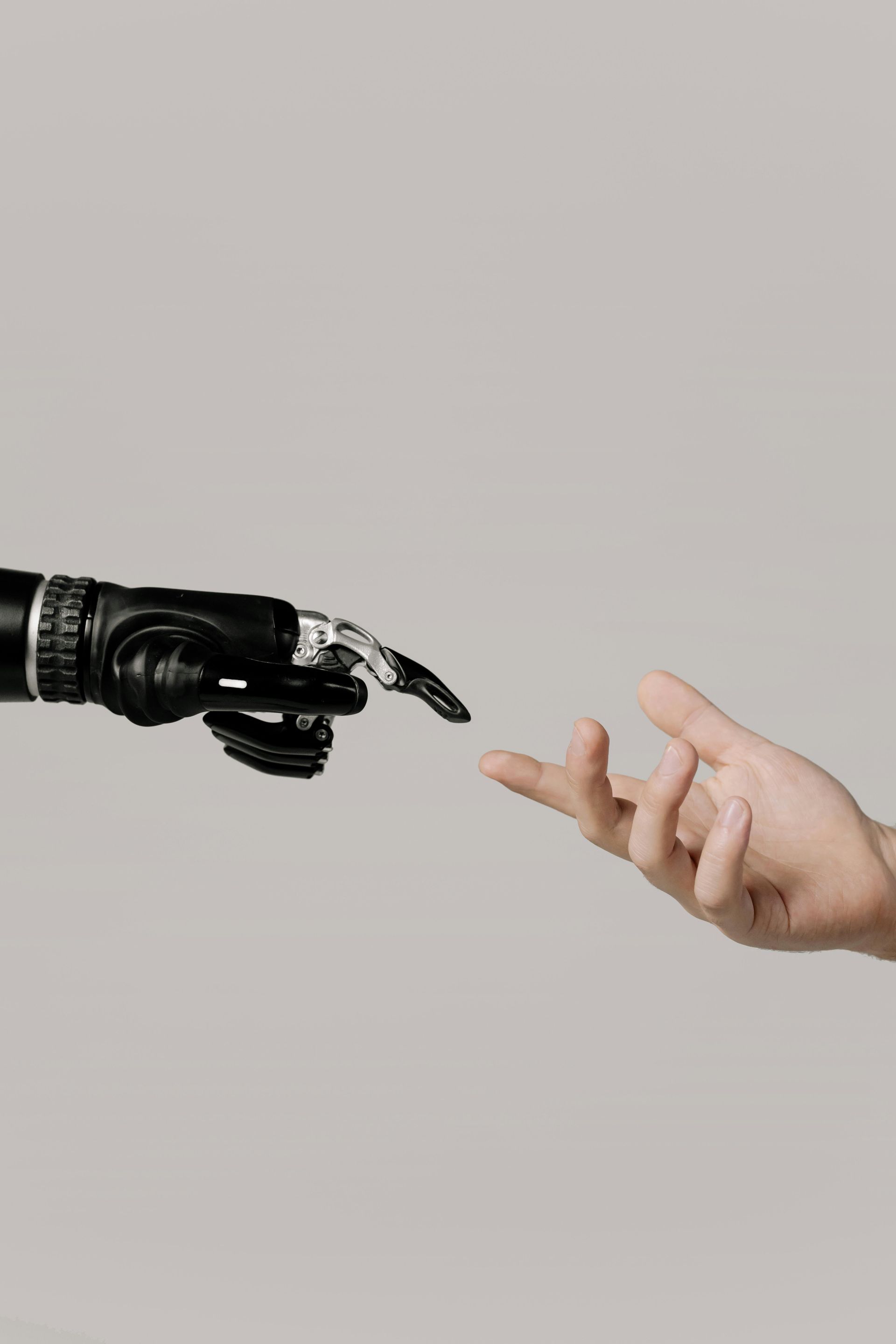AI in healthcare: Tackling the unknowns of security and data with Sky-Walker
Healthcare is changing fast...
Technology now plays a bigger role in how doctors diagnose, treat, and support patients. Among all innovations, Artificial Intelligence stands out as one of the most promising. Everyone knows AI is shaping industries like finance and retail, but in healthcare, its impact reaches deeper. AI helps doctors make faster, more accurate decisions, reduces pressure on staff, and gives patients better outcomes. From analysing complex data to improving hospital efficiency, AI is becoming a trusted tool in daily medical practice.
The following sections show how AI supports smarter decisions, improves diagnostics, cuts paperwork, and helps hospitals deliver better care. AI strengthens care by supporting people and giving them the tools to act with speed and precision.
Harvard even offers a dedicated program for healthcare professionals to learn more about implementing AI effectively in clinical settings.
Read more about it here:
https://learn.hms.harvard.edu/programs/ai-health-care-strategies-implementation
Smarter healthcare with AI: faster, safer, and more accessible care
Smarter decisions through data
Artificial Intelligence helps healthcare work faster and smarter. It supports doctors, nurses, and hospitals by turning data into insight and action.
Faster, more accurate diagnosis
AI tools analyse scans, test results, and patient records. They spot patterns that improve diagnosis and treatment. This shortens the time between detection and care. Early detection saves lives. Hospitals that use AI in imaging report higher accuracy in finding cancers and heart disease.
Less paperwork, more patient time
AI reduces the weight of paperwork. It handles scheduling, documentation, and data entry. This gives staff more time for patients. A study from Harvard shows that doctors spend hours on administration each day. Automating part of this work improves both care and efficiency.
Expanding access to care
AI also helps reach patients in remote areas. Systems can assess symptoms, review local health data, and guide care decisions. This gives smaller clinics access to knowledge once limited to large hospitals.
Stronger systems, better outcomes
AI processes data at a scale no person can match. It connects lab results, sensor data, and medical records. It supports quick and informed choices. Hospitals use AI to plan staffing, track patient flow, and reduce waiting times.
Support, not replacement
AI in healthcare is not about replacing people. It is about support, speed, and precision. When integrated with good practice, AI strengthens care from diagnosis to recovery.
The future of smarter healthcare
The future of healthcare depends on smart data use. AI makes this possible by connecting information and action in real time. Hospitals that act now gain more control, better outcomes, and a stronger connection with patients.

The risks and challenges of AI in healthcare
Healthcare is changing fast. Technology now plays a bigger role in how doctors diagnose, treat, and support patients. Among all innovations, Artificial Intelligence stands out as one of the most promising.
Everyone knows AI is shaping industries like finance and retail, but in healthcare, its adoption comes with risks. While AI helps improve decisions and efficiency, hospitals must manage data quality, security, and ethical concerns. The following sections highlight key challenges that healthcare providers face when implementing AI.
Data quality and accuracy
AI relies on large volumes of high-quality data. In many hospitals, data is incomplete, inconsistent, or unstructured. Poor data can lead to inaccurate predictions and flawed treatment recommendations, affecting patient safety.
Cybersecurity and privacy
Healthcare systems store sensitive patient information. AI tools increase the volume of data being processed, making systems a target for cyberattacks. Breaches can compromise privacy, lead to identity theft, and disrupt patient care.
Interoperability challenges
Hospitals use multiple platforms that often do not communicate effectively. Integrating AI across these systems is difficult and can slow implementation. Without seamless data sharing, AI cannot deliver its full potential.
Ethical and bias concerns
AI models can reproduce existing biases in healthcare. If not carefully monitored, algorithms may deliver unequal treatment or decisions that disadvantage certain patient groups. Continuous auditing and transparency are required.
Staff adoption and workflow
Some clinicians resist AI due to concerns about workflow disruption or job security. Without proper training and engagement, adoption may be slow and implementation less effective.
Cost and resource constraints
Implementing AI requires investment in systems, infrastructure, and staff training. Smaller hospitals may struggle with these costs, limiting access to AI benefits.
AI offers many advantages, but healthcare providers must address these challenges. Careful planning, data governance, ethical oversight, and staff engagement are essential to safely integrate AI and achieve better patient outcomes.
Sky-Walker: addressing AI challenges in healthcare
Artificial Intelligence is transforming healthcare, but it comes with challenges. Hospitals face issues with data quality, system integration, cybersecurity, and bias. Sky-Walker provides tools that help healthcare providers prevent these problems while using AI effectively.
One of the main challenges with AI is data quality. Inconsistent, incomplete, or unstructured patient data can lead to inaccurate predictions and flawed treatment recommendations. Sky-Walker collects data from multiple medical devices and hospital systems in real time, standardizes it, and ensures it is accurate before feeding it into AI models. This guarantees that clinicians receive reliable insights to support decision-making.
Another common issue is interoperability. Hospitals often operate multiple IT platforms that do not communicate efficiently. Sky-Walker integrates seamlessly with existing hospital networks and electronic health record systems. It allows AI-driven tools to access data from different sources without manual intervention. This ensures smooth workflow and faster implementation of AI solutions.
Cybersecurity is a constant concern. Patient data is highly sensitive, and AI systems can increase vulnerability. Sky-Walker provides secure data transmission and monitoring, encrypting patient information and protecting it from unauthorized access. Alerts notify staff immediately if anomalies or potential breaches occur.
Bias and fairness in AI decisions are also critical. AI algorithms can reflect biases present in the data, leading to unequal treatment. Sky-Walker includes analytics that monitor AI outputs for inconsistencies or patterns that indicate bias. Hospitals can then adjust models or data sources to maintain ethical and equitable care.
Finally, staff adoption is easier with Sky-Walker. Its user-friendly dashboards and real-time alerts allow clinicians to act quickly without needing advanced technical skills. Training is simplified, and staff can rely on AI insights with confidence.
By addressing these challenges, Sky-Walker helps hospitals use AI safely and effectively. It ensures high-quality data, protects patient privacy, integrates multiple systems, and supports clinicians with actionable, unbiased insights. Hospitals that implement Sky-Walker not only improve operational efficiency but also enhance patient outcomes, making AI a reliable tool rather than a source of risk.







 Download Product Ebook
Download Product Ebook View all our solutions
View all our solutions Sky-Walker Architecture
Sky-Walker Architecture View all our integrations
View all our integrations Book Protocol workshop
Book Protocol workshop Our Company
Our Company Contact Us
Contact Us View All Our Case Studies
View All Our Case Studies Become a PSIM Partner
Become a PSIM Partner Become a Sky-Walker PSIM partner today!
Become a Sky-Walker PSIM partner today! English
English Français
Français Nederlands
Nederlands









